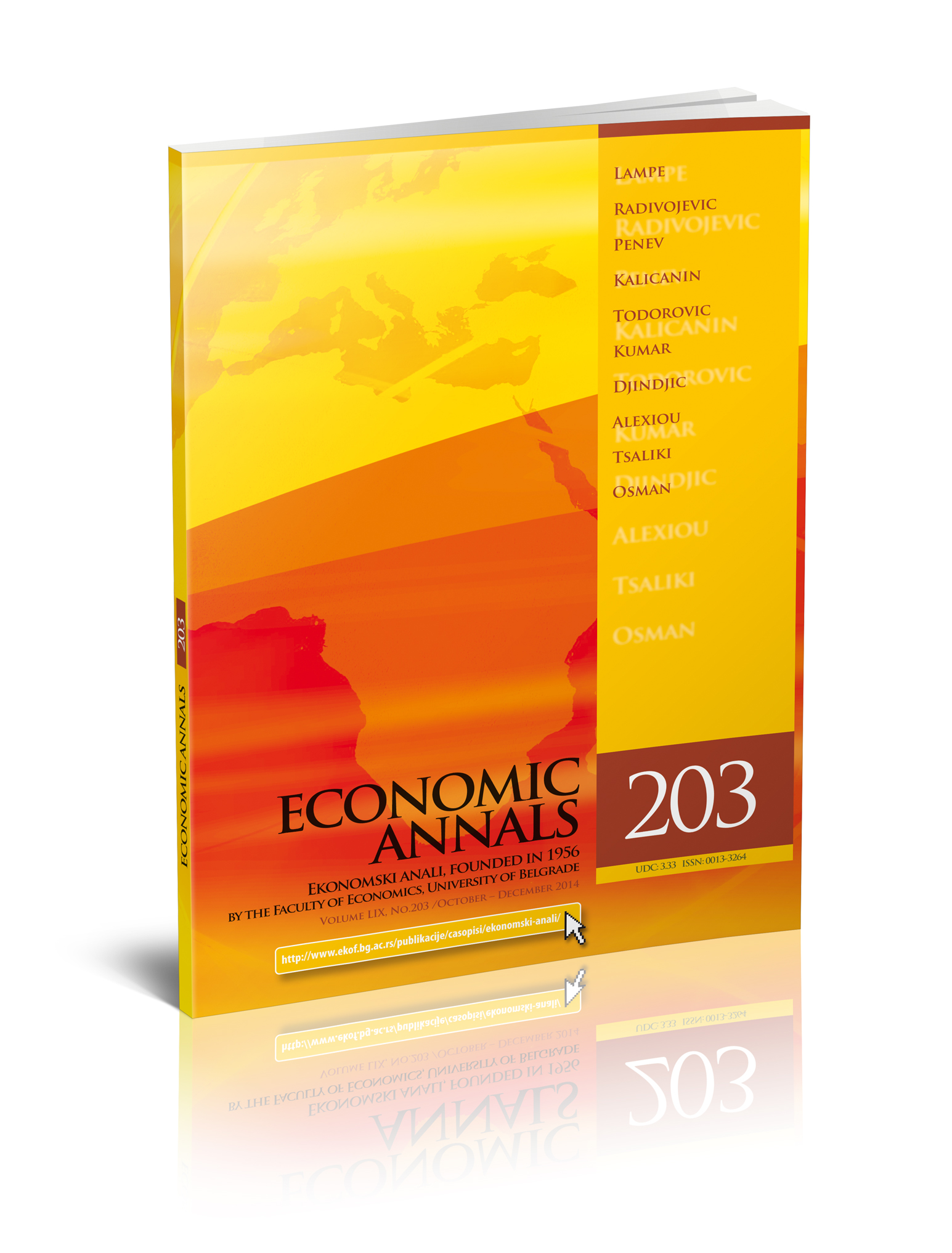INSTITUTIONAL QUALITY AND ECONOMIC GROWTH: EMPIRICAL EVIDENCE FROM THE SUDANESE ECONOMY
##plugins.themes.bootstrap3.article.main##
##plugins.themes.bootstrap3.article.sidebar##
Constantinos Alexiou
Persefoni Tsaliki
Hashim Rasha Osman
Persefoni Tsaliki
Hashim Rasha Osman
Abstract
This study aims to explore the extent to which conventional methods used in the majority of relevant growth studies can successfully interpret the economic performance of a highly underdeveloped African country such as Sudan. Applying an ARDL boundstesting approach to cointegration proposed by Pesaran et al. (2001), we look into the short-run as well as long-run relationships between institutional and various other key economic variables and economic growth over the period 1972-2008. The empirical results obtained suggest that, for the Sudanese economy, the quality of the institutional environment is one of the most important factors in defining economic prosperity.
##plugins.themes.bootstrap3.article.details##
Keywords
Institutions quality, Economic Performance, Sudan, ARDL Cointegration
JEL Classification
O43, C33
Issue
Section
Articles
How to Cite
Alexiou, C., Tsaliki, P., & Rasha Osman, H. (2014). INSTITUTIONAL QUALITY AND ECONOMIC GROWTH: EMPIRICAL EVIDENCE FROM THE SUDANESE ECONOMY. Economic Annals, 59(203), 119-138. https://doi.org/10.2298/EKA1403119A
How to Cite
Alexiou, C., Tsaliki, P., & Rasha Osman, H. (2014). INSTITUTIONAL QUALITY AND ECONOMIC GROWTH: EMPIRICAL EVIDENCE FROM THE SUDANESE ECONOMY. Economic Annals, 59(203), 119-138. https://doi.org/10.2298/EKA1403119A

